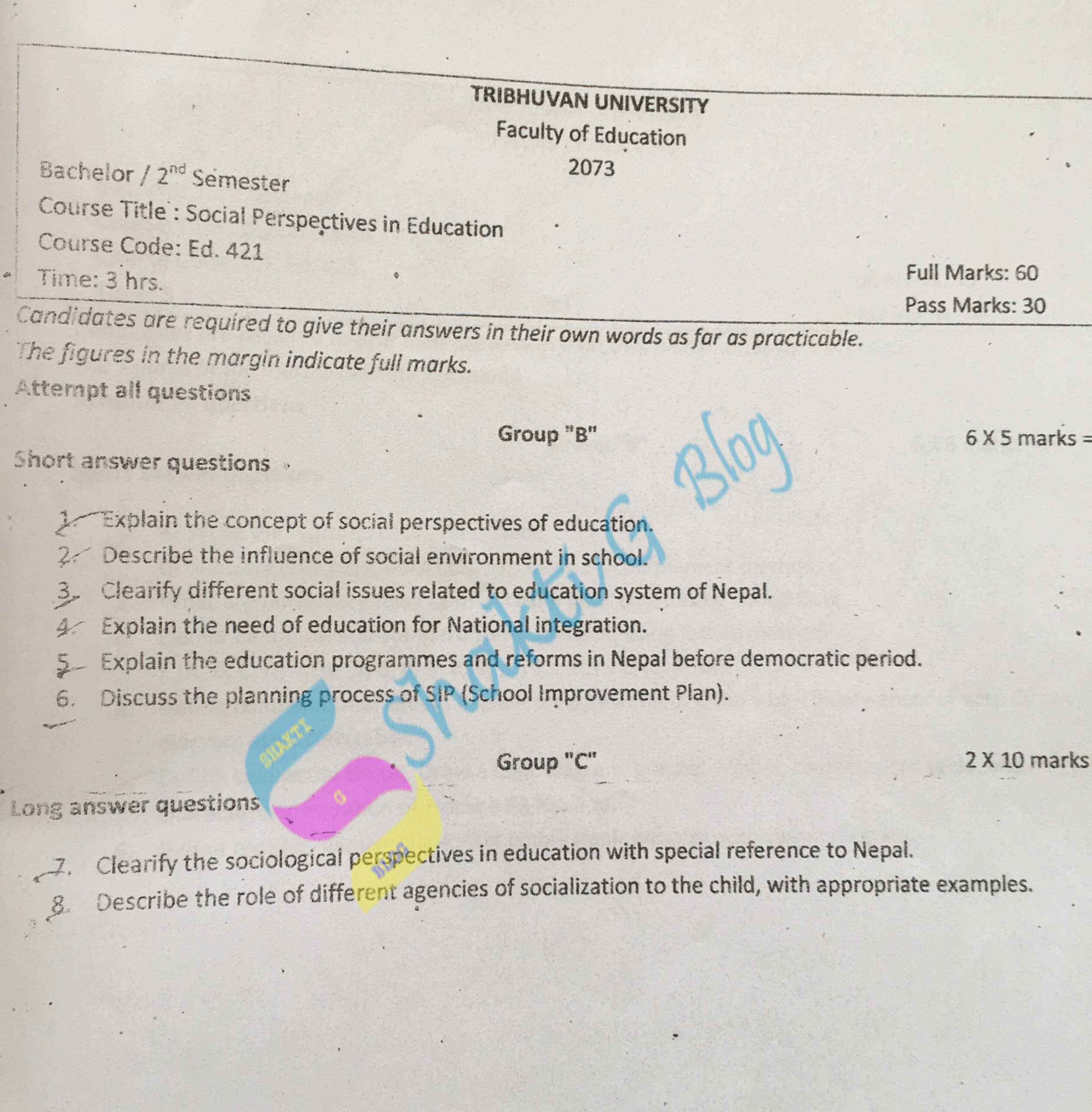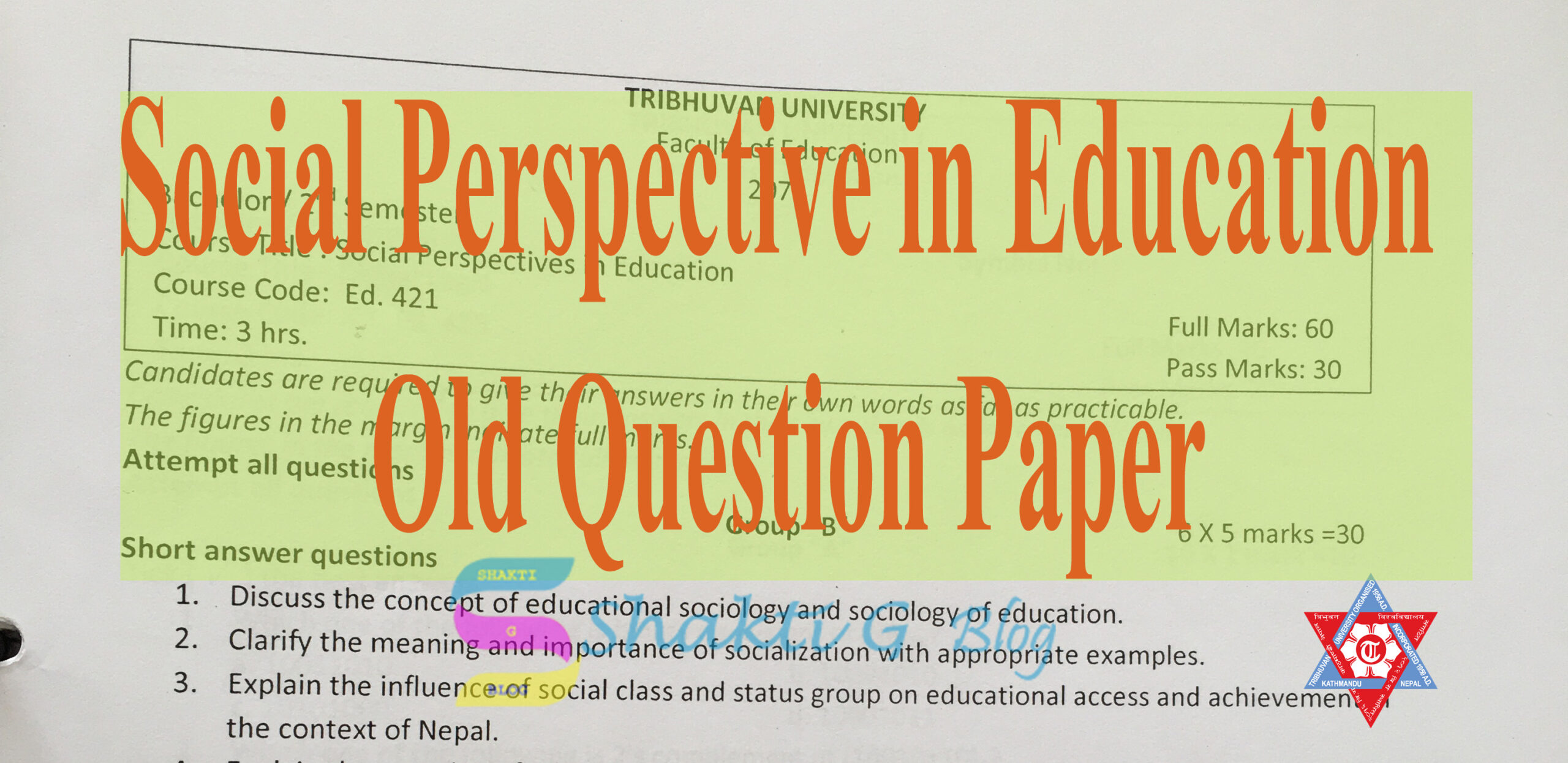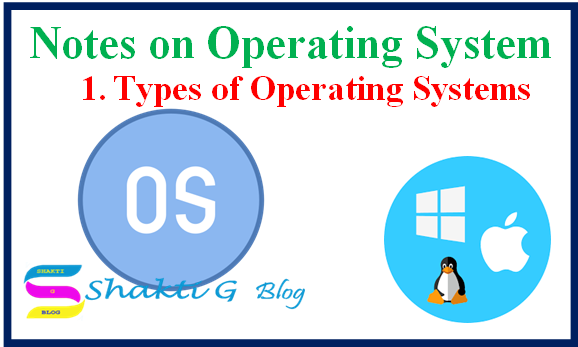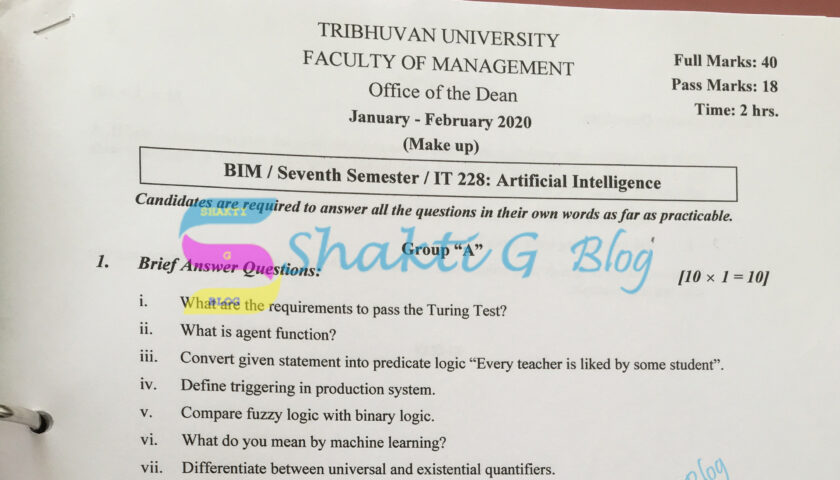Hello everyone here ShaktiG Blog presents Social Perspectives in Education Old Question Paper Year 2074 and 2073, Tribhuvan University.
Tribhuvan University
Faculty of Education, 2074
Bachelor/2nd Semester
Course Title: Social Perspectives in Education
Course Code: Ed. 421
Time: 3hrs
Full Marks: 60
Pass Marks: 30
Candidates are required to give their answers in their own words as far as practicable. The figures in the margin indicate full marks.
Group “B”
Short-answer Questions:
1. Discuss the concept of educational sociology and sociology of education.
2. Clarify the meaning and importance of socialization with appropriate examples.
3. Explain the influence of social class and group on educational access and achievement in the context of Nepal.
4. Explain the meaning of education for international understanding with suitable examples.
5. Clarify the concept and measures of equality and equity in education.
6. Describe the planning process of the district-level education plan.
Group “B”
Long answer questions
7. Elaborate the concept of the right-based approach to education with reference to child rights, human rights, woman’s rights,s and people with disabilities in the Nepalese context.
8. Describe the influence of the educational system and the environment in school with special reference in Nepal.
Objective Question:
1. Who proposed the view that sociology is the science of the study of society?
a. Ward
b. Comte
c. Rousseau
d. Herbert
2. Who is known as the father of educational sociology?
a. E. George Payne
b. John Dewey
c. Auguste Compte
d. Karl Manneheim
3. Which of the following is the main agency of socialization?
a. School
b. Community
c. Family
d. Media
4. Which of the following is less influencing factor on educational access and achivement?
a. Gender
b. Caste
c. Language
d. Religion
5. Inclusive education means…………….
a. Education for the children having problems in learning
b. Education for the children having the ability to learn
c. Education for the children having extra ordinary potential
d. Education for the children having target group
6. The social policy of education must be based on…….
a. social Justice
b. Laissez fair
c. Status quo
d. Maintaining discipline
7. When was the universal declaration of Human Rights issued?
a. Dec 10, 1945
b. Dec 10, 1948
c. Dec 10, 1955
d. Dec 10, 1989
8. Opposition in education started in which of the following?
a. During the unification
b. Before the unification
c. During the Rana rule
d. After Democracy
9. Which of the following educational commissions recommended the objective “to develop internal power of an individual”?
a. NNEPC 2011
b. ARNEC 2018
c. NESP 2028
d. NEC 2049
10. The district education plan falls under……….
a. National Plan
b. Central Plan
c. Micro Plan
d. Meso Plan
Social Perspectives in Education Old Question Paper Subjective:
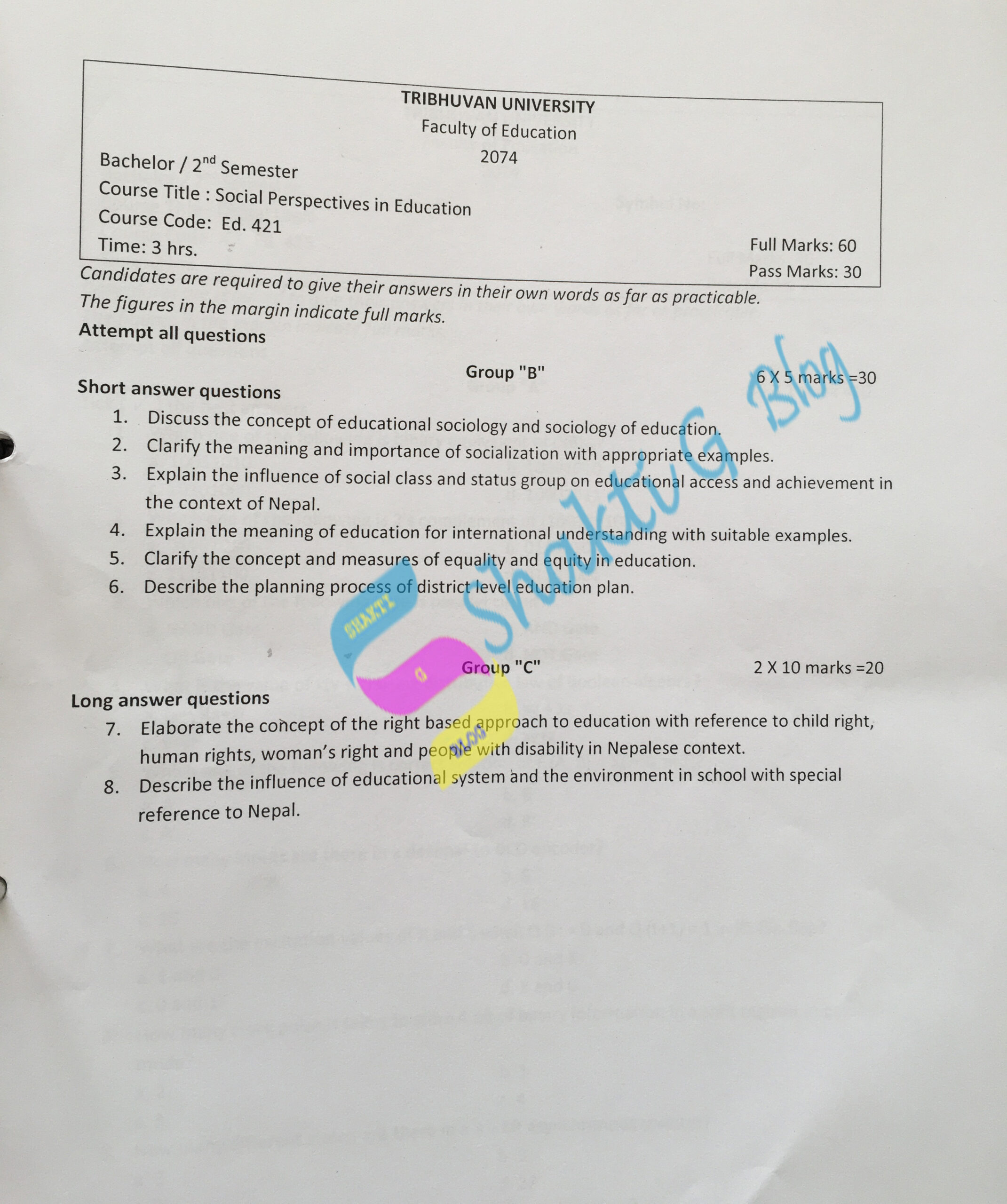
Social Perspective in Education Old Question Paper Objective :
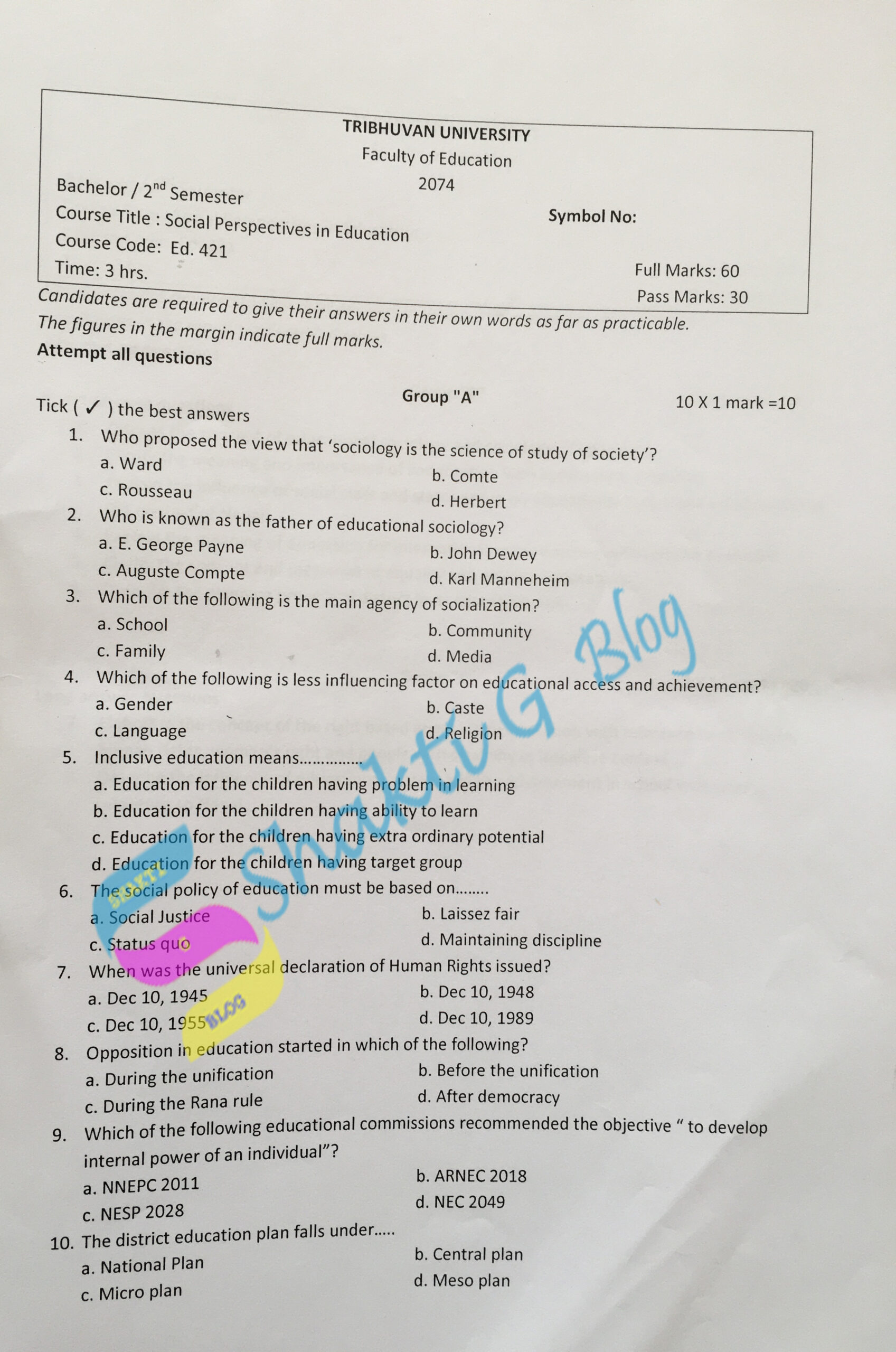
Social Perspectives in Education Old Question Paper 2073:
Short Answer Questions:
1. Explain the concept of social perspectives of education.
2. Describe the influence of the social environment in school.
3. Clarify different social issues related to the education system of Nepal
4. Explain the need of education for National integration.
5. Explain the education programmes and reforms in Nepal before the democratic period.
6. Discuss the planning process of SIP (School Improvement Plan).
Long Answer Questions:
7. Clarify the sociological perspectives in education with special reference of Nepal.
8. Describe the role of different agencies of socialization to the child, with appropriate examples.
Old Question Paper of AI (Artificial Intelligence)
Social Perspectives in Education Old Question Paper Subjective:
